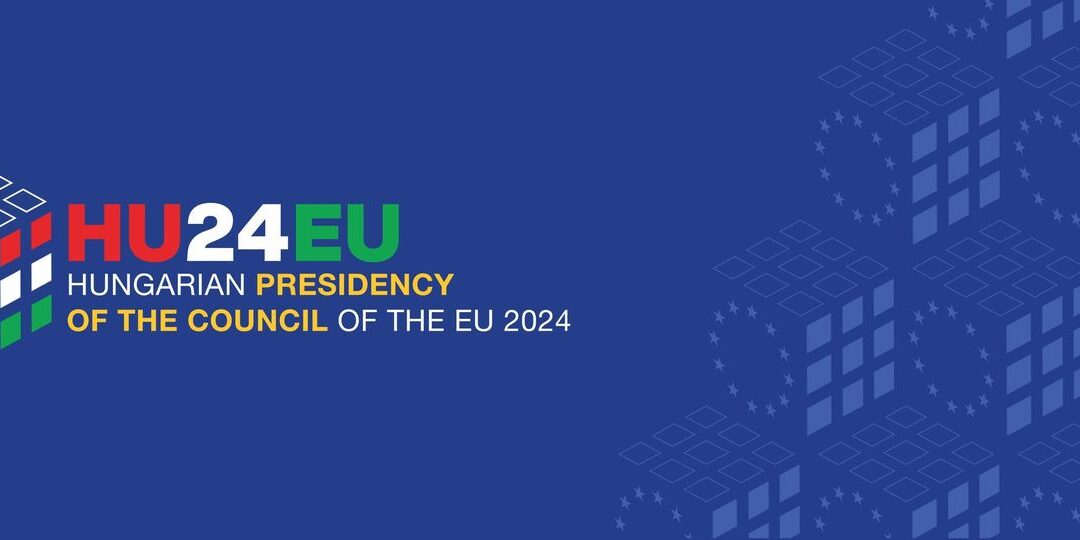In July, Hungary will begin its six-month rotating presidency of the Council of the European Union, which will run until December 2024. Hungary will work as an honest broker, in the spirit of sincere cooperation between member states and institutions, for the peace, security and prosperity of a truly strong Europe.
New European Competitiveness Deal
In the current international context of multiple challenges, where Europe is lagging behind its global competitors, it is vital to improve the productivity and thus the competitiveness of the Union and its member states, and to stimulate growth.
It is in our common interest to address the effects of the difficult economic circumstances of the recent years, such as high inflation, increased public debt, high energy prices, fragmentation of international supply chains, or lower European productivity and slower economic growth compared to our competitors, and to put the EU economy back on an upward trajectory.
Therefore, the Hungarian presidency will place a strong emphasis on improving European competitiveness, integrating this objective into all policies, by applying a holistic approach.
Our aim is to contribute to the development of a technology-neutral industrial strategy, a framework for boosting European productivity, an open economy and international economic cooperation, as well as a flexible labour market that creates secure jobs and offers rising wages in Europe, which is a crucial factor to growth and competitiveness.
The adoption of a New European Competitiveness Deal is a key priority of the Hungarian presidency in order to restore economic development and create the conditions for sustainable growth, deepen the internal market, focus on supporting small and medium-sized enterprises, promote the green and digital transition in partnership with European economic stakeholders and citizens, international cooperation, and ensure the stability and sustainability of jobs.
The Reinforcement of European Defence Policy
The ongoing and emerging conflicts on the continent and around the world clearly demonstrate that Europe needs to significantly improve its defence capabilities, international crisis management responsiveness, and capacities. Beyond defence policy alliances and cooperation, the European Union must play a greater role in guaranteeing its own security by strengthening its resilience and capacity to act.
Bearing this in mind, the Hungarian presidency will place particular emphasis on strengthening the European Defence Technological and Industrial Base, including defence innovation and the enhancement of defence procurement cooperation between member states, beyond the implementation of the Strategic Compass that defines the main directions of EU defence policy.
A Consistent and Merit-Based Enlargement Policy
Enlargement is one of the most successful policies of the European Union. To preserve this favourable tendency, it is essential to keep enlargement policy merit-based, balanced and credible.
The European Union has long been engaged in ensuring a European perspective for the Western Balkans, as the Community cannot be complete without the accession of this region.
The region’s integration benefits the EU in economic, security and geopolitical terms. To further broaden and deepen our cooperation, we will invite our partners to consultations both in the framework of the EU-Western Balkans Summit and the European Political Community.
Stemming Illegal Migration
The migratory pressure that Europe has been facing for several years is not only a challenge to the Union as a whole but also places a huge burden on individual member states, especially those at the external borders of the Union. It has been a long-term objective of the EU to tackle this, which requires effective, even short-term instruments.
In order to find the appropriate solutions, closer cooperation with countries bordering the EU is indispensable, as well as with the key countries of origin and transit. In addition, illegal migration and human smuggling must be curbed. In this respect, the Hungarian presidency will pay particular attention to the external dimension of migration, including efficient cooperation with relevant third countries, more effective returns, and innovative solutions for rules on asylum.
In addition, during the follow-up on the implementation of the annual priorities of the Schengen cycle, we intend to highlight the importance of external border protection and the need for EU funds for this purpose.
Shaping the Future of Cohesion Policy
To ensure harmonious and balanced development in the Union, it is essential for Europe to reduce regional disparities as well as to secure economic, social, and territorial cohesion.
A well-structured and balanced cohesion policy is the key instrument in this regard. Cohesion policy, as the main investment policy of the European Union, has proven successful for decades in achieving the objectives enshrined in the Treaties.
However, as the 9th Cohesion Report points out, there are still significant development gaps between member states and even within regions, considering that more than a quarter of the EU’s population lives in regions not reaching 75% of the Union’s average development level.
The convergence of these regions is not only crucial in terms of fully utilising the competitiveness potential of the EU, but it is also essential for the proper functioning of the Single Market.
The Hungarian presidency will aim for a high-level strategic debate on the future of cohesion policy, including its role in promoting competitiveness and employment, as well as in addressing demographic challenges.
A Farmer-Centered EU Agricultural Policy
European agriculture may have never faced as many challenges as it does today. Extraordinary weather conditions caused by climate change, growing input costs, increasing imports from third countries, and overly stringent production rules have significantly decreased the competitiveness of the sector.
The accumulation of these challenges led to a situation where the livelihood of European farmers is threatened. It is essential to view agriculture not as a cause of climate change, but as part of the solution, by engaging farmers in adopting more sustainable production practices.
While guaranteeing food security, European farmers provide all EU citizens with basic public goods. Therefore, a long-term guarantee of food sovereignty and food security should be part of the strategic autonomy of the EU.
In the semester ahead, the Hungarian presidency will encourage the Agriculture and Fisheries Council to take advantage of the institutional transition period and guide the new Commission in formulating the rules of the Union’s post-2027 agricultural policy for a competitive, crisis-proof and farmer-friendly agriculture.
Promoting sustainable agriculture is a key priority to find a rational balance regarding the strategic objectives of the European Green Deal, the stabilisation of agricultural markets, and a decent standard of living for farmers.
Addressing Demographic Challenges
The accelerating ageing of European societies, unsustainable social welfare systems, and labour shortages are long-standing and intensifying problems in all of Europe that need to be addressed urgently and effectively.
Ageing society, green and digital transition, rural depopulation, increasing pressure on fiscal resources, and the changing world of work generate such demographic issues and challenges which need to be put into the spotlight.
These problems have become increasingly important for the competitiveness of the EU and the sustainability of public finances. The Hungarian presidency, fully respecting the competences of member states, wishes to draw attention to these challenges, and the Commission’s demographic toolbox, published in October 2023, provides a good basis for that.

